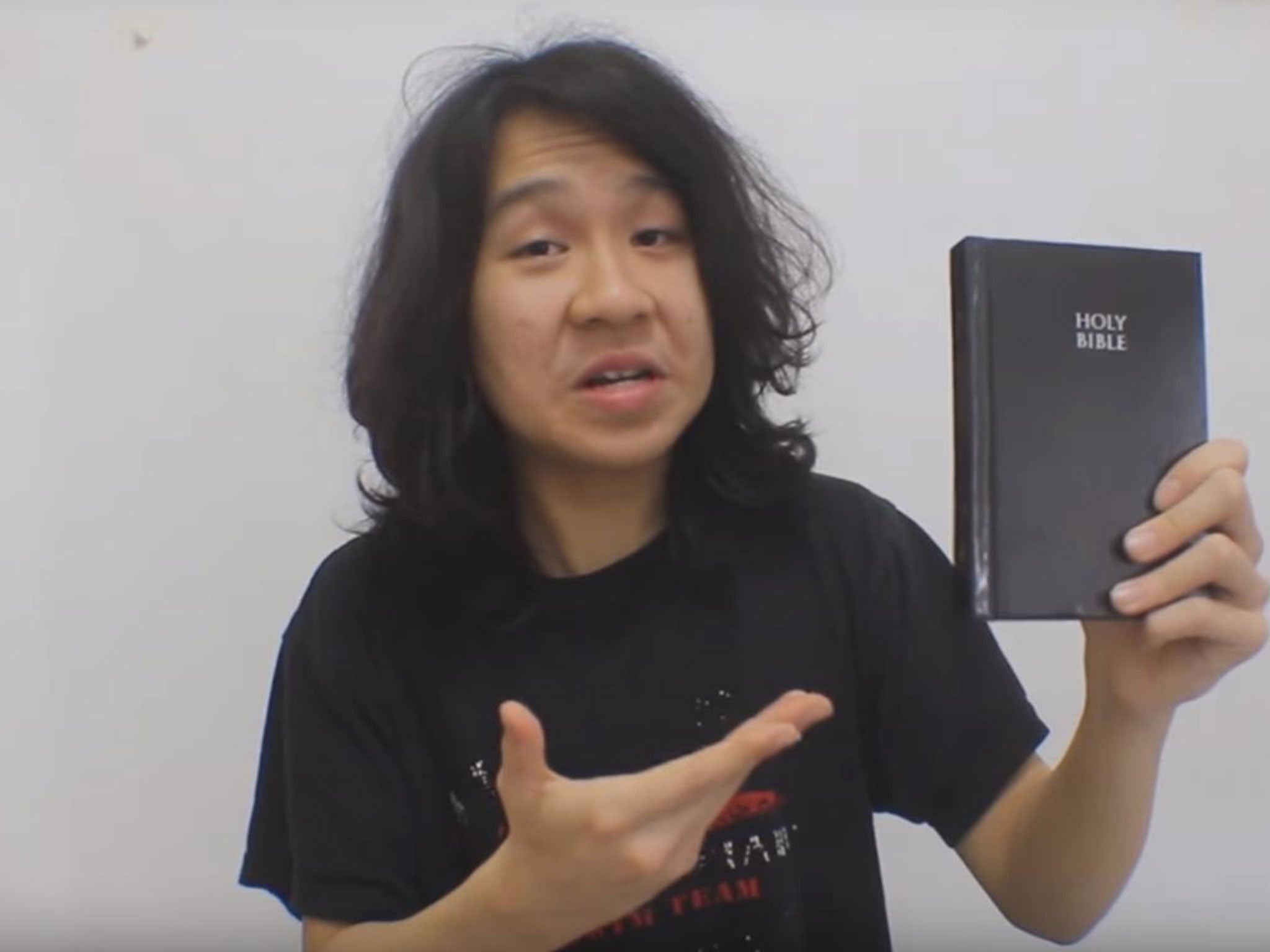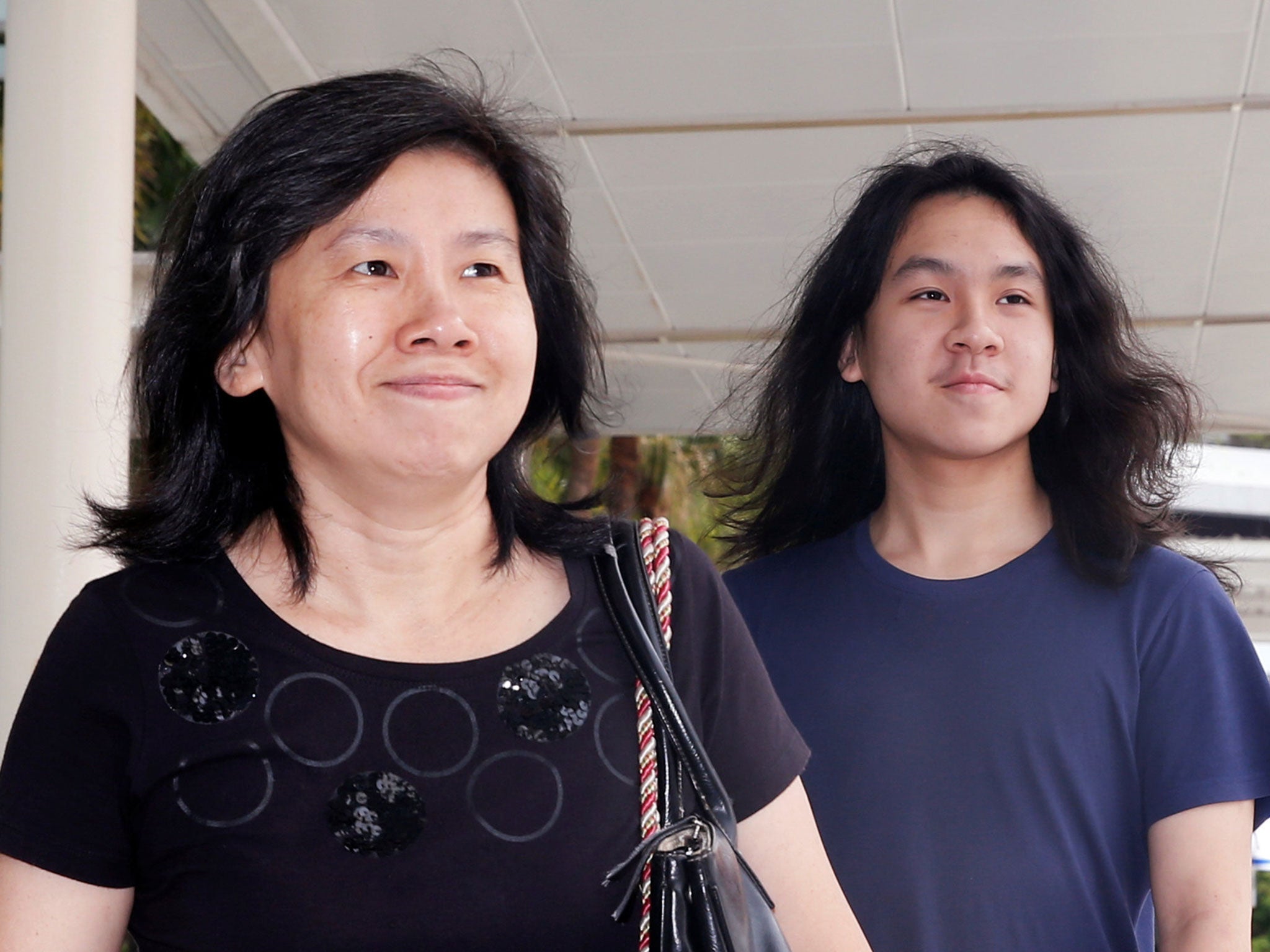Singapore jails teenager YouTube blogger for 'insulting Christians and Muslims' with videos
The UN raised alarm over the case, which came after he criticised human rights in Singapore

Your support helps us to tell the story
From reproductive rights to climate change to Big Tech, The Independent is on the ground when the story is developing. Whether it's investigating the financials of Elon Musk's pro-Trump PAC or producing our latest documentary, 'The A Word', which shines a light on the American women fighting for reproductive rights, we know how important it is to parse out the facts from the messaging.
At such a critical moment in US history, we need reporters on the ground. Your donation allows us to keep sending journalists to speak to both sides of the story.
The Independent is trusted by Americans across the entire political spectrum. And unlike many other quality news outlets, we choose not to lock Americans out of our reporting and analysis with paywalls. We believe quality journalism should be available to everyone, paid for by those who can afford it.
Your support makes all the difference.A teenage boy has been jailed in Singapore for “wounding the feelings of Muslims and Christians” in a series of YouTube videos, sparking condemnation from the United Nations.
It is the second time 17-year-old Amos Yee has been imprisoned over his blogs, being sentenced to four weeks in jail last year over footage where he compared revered former Prime Minister Lee Kuan Yew to Hitler and Jesus.
He has been jailed for six weeks and fined $2,000 (£1,150) on six charges of intending to wound the feelings of Muslims and/or Christians and two of failing to attend a police station, the Straits Times reported.
Principal District Judge Ong Hian Sun told the court Amos had “deliberately elected to do harm by using offensive and insulting words and profane gestures to hurt the feelings of Christians and Muslims”.
“His contemptuous and irreverent remarks have the tendency to generate social unrest and undermine the religious harmony in our society,” he added.
The teenager’s sentence was due to commence on 13 October and he faces another 10 days in prison if the fine is not paid.
Singaporean prosecutors called or a “clear message” to be sent by the case, in light of Amos’ previous alleged offences.
N. Kanagavijaya, a lawyer for the teenager’s defence, said he admitted a lack of “intellectual ability to discuss religion” and a “shallowness of thoughts in respect of both Christianity and Islam”.
Amos’ YouTube channel, which is still online, contains four videos in a section on “Religion Horrors”, including two entitled “Refuting Islam With Their Own Quran”, “Refuting Christians With Their Own Christian Bible” and “Responding to the Bullshit of Christians”.

The videos see the teenager offering his interpretation of holy books and their interpretation, frequently using graphic and explicit language.
His posts have amassed hundreds of thousands of views, but a far larger section of Amos’ channel is devoted to Singapore itself, which he calls “the most underrated dictatorship in the world”, criticising the death penalty, compulsory national service and crackdowns on political dissidents.
He spent 53 days in detention last year after being convicted of charges of obscenity and wounding religious feelings in a video on free speech.
Human rights organisations have raised concerns about the prosecutions, which started when Amos was just 16, and cited them as an example of wide-ranging restrictions on human rights in Singapore.
The United Nations Special Rapporteur on freedom of opinion and expression, David Kaye, said last week’s sentence violated international human rights law, which allows only serious and extreme instances of incitement to hatred to be prohibited as criminal offences.
“The lesson that somebody can be thrown in jail for their speech is exactly the wrong kind of message that any government should be sending to anybody, but especially to young people,” he said.
“The criminalisation of a broad range of legitimate, even if offensive forms of expression is not the right tool for any State to pursue legitimate aims such as tolerance and the rights of others.
“Threats of criminal action and lawsuits contribute to a culture of self-censorship, and hinder the development of an open and pluralistic environment where all forms of ideas and opinions should be debated and rebutted openly.”
The Committee to Protect Journalists (CPJ) called for Amos’ immediate release, saying it had documented moves to rein in Internet-based news outlets and gag bloggers with defamation cases if they question the judiciary or investigate state financial bodies.
Online bloggers play a crucial role in Singapore, where most of the country's media are directly or indirectly controlled by the government, and self-censorship is prevalent, CPJ said.
Defending Amos’ first prosecution in 2015, Prime Minister Lee Hsien Loong said internet posts can cause “a humungous row” and “must be taken seriously”.
Singaporean law forces news websites and papers to register with authorities and be regulated, taking orders to remove any articles deemed to be against “public interest, public order or national harmony” or to offend “good taste or decency”.
Numerous journalists have been arrested, along with people accused of posting disparaging comments on social media.
Join our commenting forum
Join thought-provoking conversations, follow other Independent readers and see their replies
Comments